This post has been sitting in my drafts for a while, but we’re going kinda off-topic today with a spinoff from my original post about the LuLaRich documentary. You’ve been warned. 😉
After I wrote my post about LuLaRich, I realized that I had left out one of the things I found most disturbing!
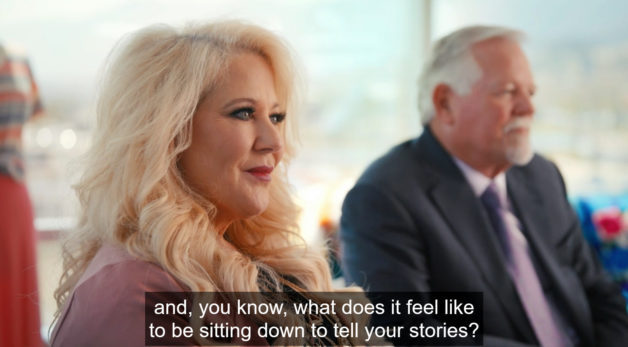
A screengrab from LuLaRich
I went back and added a little snippet to the original post, but I’m also going to talk about it here because I think I have a whole post’s worth of thoughts.
To catch you up: LuLaRich is an Amazon documentary about LuLaRoe, an MLM company that sold clothing and took serious advantage of women who wanted to make money by selling the clothing.
Deanne and Mark Stidham are the owners, and oddly, they agreed to be interviewed for this documentary. They said a lot of wild things, but a quote from Mark is one that really stands out to me and irks me to this day.
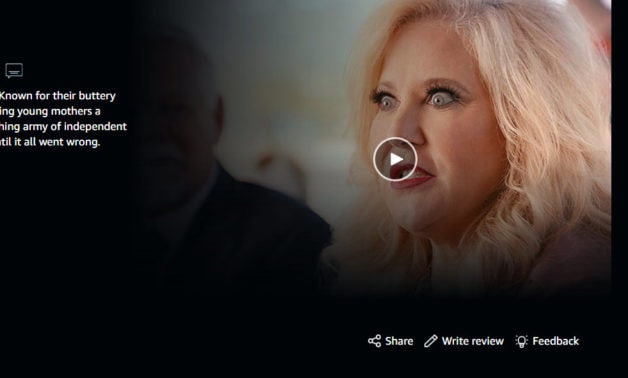
Higher-ups in MLMs often get frustrated with people further down the line who can’t seem to make the “business” a success, and the higher-ups routinely blame the downline people for just not working hard enough.
In the context of this, Mark Stidham said, “We believe in self-reliance, and that the universe is ultimately fair.”
When I watched LuLaRich, I was in the midst of reading War Doctor, a memoir written by a doctor who has spent decades volunteering his surgery services in war-torn parts of the world, such as Aleppo, so my jaw kind of dropped when Mark said that.
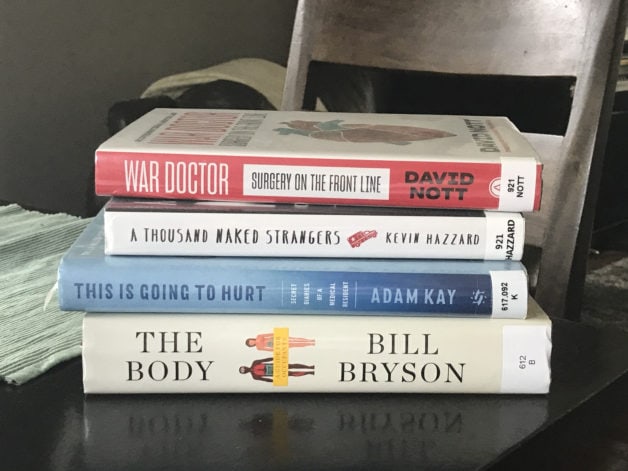
What? How would a person who is not disadvantaged in any way be a trusted source for information on how fair the world is? Mark Stidham has just about every advantage in life that you could ask for. Of course he thinks the universe is fair!
The universe is ultimately fair? Tell that to civilians in Aleppo who have been gunned down by snipers.
And honestly, you don’t even have to go to such extremes (probably even Mark would agree that the universe has not been very fair to civilians in the midst of war). There are plenty of people in the U.S. that have disadvantages that others do not have.
What about people who have disabilities? Disabilities make life more challenging, and they are not distributed fairly.
What about children who grow up in poverty? Or children who get a poor education? What about people who have been abused? What about babies who are born addicted to drugs?
And conversely, there are lots of people in the U.S. who have advantages. If you grow up in a family with money and connections, you have a serious advantage. If you grow up with access to a good education, you have an advantage.
And to bring this back to LuLaRoe, the universe is most certainly not “ultimately fair” for reps who join now. As with all MLMs, the people who got in when LuLaRoe first started had an enormously unfair advantage over those who joined later.
Hard work does matter
I get that there’s a kernel of truth in what people are trying to say when they preach a, “Pull yourself up by your bootstraps!” message, because without hard work, most advantages are somewhat useless.
For example, if you get sent to an amazing school but don’t put in the work, you will not be well-educated.
And by the same token, if you go to a not-so-great school but you put in lots of work, you could end up pretty well-educated.
Still, the point is: advantages such as amazing schools are not available to everyone equally, because the universe is…not fair.
It takes humility to admit you have advantages
There is a part of all of us that would like to feel self-congratulatory about our successes. We want to think we are self-made; that we deserve all the credit for everything we’ve accomplished.
So, it’s not a wonder that it’s tough to admit that we’ve had help, privileges, or advantages. Humility is a hard pill to swallow!
But the truth is that most of us here, reading this on the internet, have had advantages and privileges in one way or another; it’s common.
The uncommon thing is to have the humility to acknowledge those advantages.
I think advantages should be gratefully used
There’s nothing sad or embarrassing about having advantages (gratefulness is the more appropriate response), but it IS sad if the advantages are squandered.
When I think about some of my own advantages and gifts (a solid extended family, a knack for saving money, the ability to write, a brain that can learn about medical stuff, a healthy body, a good education, a heart that wants to serve others, the money to go to school and get a degree), I think about how it would be such a waste if I didn’t use those gifts to do something good in the world!
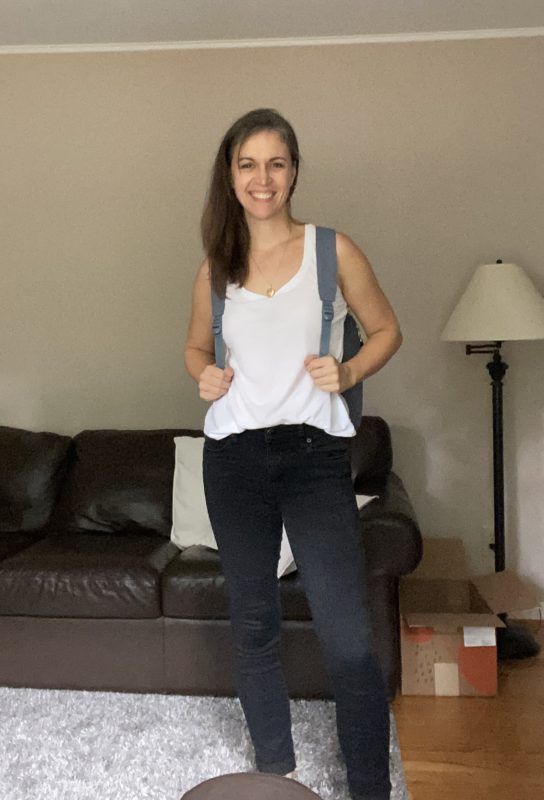
That’s why I blog and do volunteer work, and it’s why I’m going to get my RN.
Denying your advantages makes you look…worse
It’s one of those counterintuitive things in life; we think we make ourselves look better by presenting a self-made, self-reliant image.
But if you are like me, you actually think more highly of someone who can humbly admit to the gifts and advantages they’ve had in life.
And the converse is true. When someone cannot see the help they’ve gotten, I tend to lose some respect for them.
Seeing your advantages gives you grace for others
In the context of the LuLaRoe documentary, Mark Stidham was having a super ungracious attitude toward the reps who were having a hard time making money with LuLaRoe.
It was basically a, “Well, if you worked harder, then you’d be doing great, like me.” type of attitude.
Leaving aside the problematic nature of MLM companies, this is a pretty self-righteous outlook.
If you think you are entirely self-made, though, it is actually logical to look down on other people who are less successful; you think your current state is your own doing, and you think other people should be able to do what you’ve done.
But if you can see how you’ve been given gifts and help and advantages, then you can have grace for others who might not have had the same help.
To bring this around to frugality…
Sometimes, the Mark Stidham outlook crops up in frugal circles in the form of a frugal-er-than-thou type of attitude. Those of us who are good at managing our money and keeping our expenses down and resisting the siren call of consumerism can look down on people who have more trouble in these areas.
“Why can they not just do X,Y, and Z?” we think.
But I can think of all sorts of advantages I’ve had in life that have made it easier for me to be a money-saver.
To name a few:
I grew up in a family that modeled and valued hard work and entrepreneurship.
I grew up in a family where it was normal to fix things, do manual labor, cook from scratch, use the library, and a million other similar things.
I grew up in a family that did not carry debt.
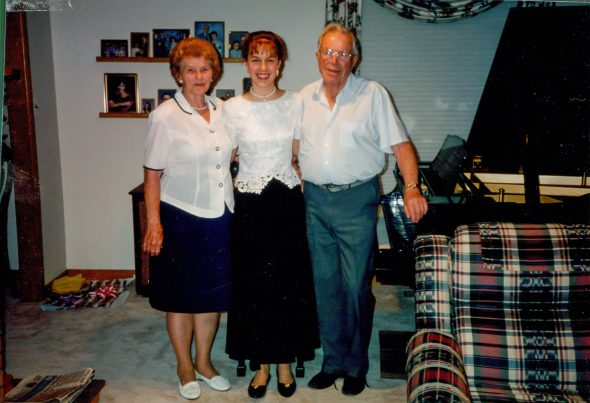
me, fresh out of high school. That’s my very frugal grandma with me!
My parents provided for my needs, but expected me to pay for things like a car, car insurance, and non-necessities in life (like extra clothes, hobby supplies, and so on.) This taught me some responsibility and independence.
I think I was born with a money-saving bent, so frugality is not a super-uphill battle for me.
Of course, I’ve also had to put in consistent effort at saving money. And my life has not been free of every economic disadvantage.
But that doesn’t change the fact that I’ve been given lots of advantages that are not my own doing, and it’s good and healthy for me to remember that not everyone has had those same advantages.
So, that’s part of why I blog here: to share what I know and have experienced with other people. It’s a way of spreading around the blessings I’ve received.
_______________
In sum, I think that advantages:
- are not equally distributed
- are something to be thankful for
- are healthy to see and acknowledge
- should be used to do good things in the world
What do you think about this whole idea?
I’d love to hear about some advantages you’ve experienced that have made frugality (or something else!) easier for you.

Carrie Huggins
Sunday 12th of February 2023
I agree 100%. The self righteous d’attitude of the LLR founders is due to their toxic religious beliefs. They think they’re “blessed” and everyone who isn’t - well God must know something and is blocking their blessing. It’s disgusting.
Jane
Saturday 28th of January 2023
Really interesting blog post, I agree with you. Working at a children’s hospital taught me a lot about the unfairness of the world. You will make an excellent RN for many reasons. You’re a thoroughly decent human and I hope going forward that the world is good to you and your loved ones.
Lori
Saturday 28th of January 2023
Really thoughtful post, Kristen! I feel like "life is ultimately fair" is kind of an easy version of the much harder truth I hope I convey to my kids, which is basically that life isn't fair, but God is good. And, let's face it, a lot of times when life isn't fair, it works out in our favor. I think we all feel the pain of life being unfair when something bad happens to us or someone we love, but we don't mind life being unfair when our kid scores in the top 5% on the SAT or our family has everything we need plus more or we don't struggle with any health problems.
I do think some of the reason people are resistant to being fully aware of their blessings (advantages, privileges, whatever we want to call them) is because we seem to have the idea as a society that mistakes are only forgiveable if we feel like you couldn't have done better. I was having a talk with friends about tuition assitance for a school we are starting, and one thing that we were talking about was how often we are so eager to show grace to people who have made big, huge mistakes that we often ourselves haven't had to deal with, but we're less likely to show it to people like us who made mistakes similar to ours and who we think should have just done better. We'd all be eager to help a woman who couldn't afford tuition because she'd grown up in hard circumstances, had struggled with addiction for years, and now wanted better for her child, but could we show the same grace to a middle-class family who made some really bad choices with credit cards a few years ago and now are struggling to make ends meet because of their debt? I think so many of us would see the first case as a victim of circumstance, and the second case as people who made their own bed and so now just need to lie in it. I think owning up to having a lot of advantages can feel like saying, "I'm a person who should have it all together, and if I don't, it's entirely my fault and entirely my responsibility to get out of it."
But life is more complicated, and we're all both responsible for our choices but also on some level victims of our circumstances, in all different ways.
Ecoteri
Friday 27th of January 2023
What a wonderfully thougthful post followed by a double helping of intensely thoughtful comments. Thank you Kristen for your courage in putting this one out there for contemplation, and for all my fellow readers for your kind and detailed and caring and nuanced responses. I just wanted to mention a book that I haven't yet read and DID hear about during a wonderful CBC interview: "No Bootstraps When You're Barefoot My rise from a Jamaican plantation shack to the boardrooms of Bay Street" Author Wes Hall
Anita Isaac
Thursday 26th of January 2023
i think life is what you make of it. i grew up in a family with a mother who didn't clean, never gave me affection... told me she was cursed by the gypsies when she had me. and fed me tv dinners. i did not have my first date until i was in college. had no siblings, no cousins, hardly any friends. my father cut me out of his will and i didn't even know until after he died. nuff said.
today i have two fabulous kids who love me very much and we argue over who loves whom more. i have a great hubby. we have no debt, no car, no air conditioning and not much space for the four of us and our puppy Buddy. I am so grateful for how my life turned out.
i teach my kids about investing, giving charity and never buy anything on credit except a house. and when you buy a car, you get a used one and pay cash. plus never let a sibling's spouse get in the way of your sibling relationship.
great high school photo.